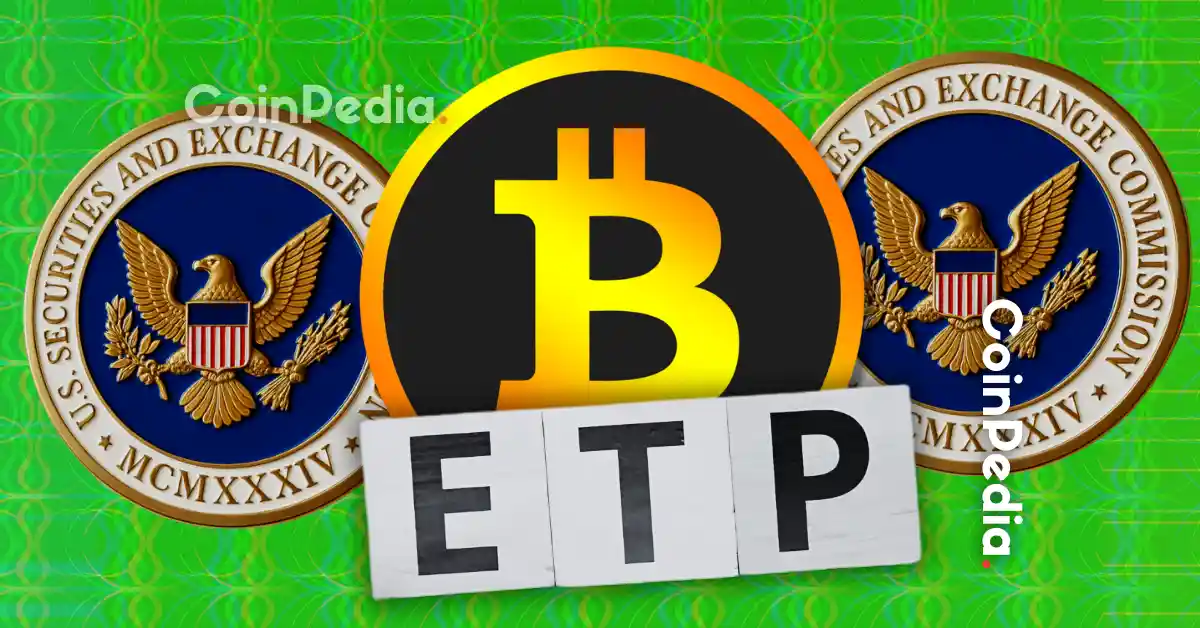
SEC releases detailed crypto ETP guidance outlining NAV rules, disclosure standards, custody practices, and governance requirements.
New framework aims to ease regulatory confusion and improve investor protection as token ETP adoption grows in mainstream finance.
On July 1, the SEC (Securities and Exchange Commission) issued guidance for crypto ETP (Exchange Traded Products) users to resolve the regulatory ambiguity. The official notice released by the SEC outlines the role of crypto issuers and the information they must include in their filings.
It provides detailed information on how users calculate NAV and select benchmarks to custody practices, service provider agreements, governance structure, and potential conflicts of interest.
SEC’s Views on Clarity in Crypto Assets
The SEC guidance aims to provide greater clarity for the crypto assets regulatory framework, outlining certain disclosure requirements under federal law. SEC stated that ETP issuers must register their offerings and classes of securities under the Securities Act of 1933 and Securities Exchange Act of 1934.
SEC added: “Issuers of crypto asset ETPs are also subject to the anti-fraud provisions of the federal securities laws. However, the crypto asset ETPs addressed in this statement are not registered as investment companies under the Investment Company Act of 1940.”
Was the SEC Notice Necessary?
Token ETPs (exchange-traded products) are becoming more popular as big investment firms start using them. With more money flowing into spot Bitcoin ETFs, the SEC is working on new rules to better manage digital assets. These rules will require token ETPs to report any suspicious activity to help reduce risks.
- Also Read :
- Senate Passes Donald Trump’s Big Beautiful Bill
- ,
Key Highlights of SEC Crypto ETP Guidance
- Provides a description of the objective of trust and tracking guidelines, the issuer’s policies– use and limitations, the issuer’s rights, the issuer’s guidelines on forks, airdrops, and other similar events.
- Described the associated risks of liquidity, cybersecurity, technology, regulation, and tax.
- Provides detailed calculation of NAV, describes securities, and defines the roles of Directors, Executive Officers, and Significant Employees involved in crypto ETP.
Final Thought
As the SEC is collaborating with crypto exchanges to create universal listing standards for token ETFs, potentially allowing users to bypass the lengthy 19b-4 process. After 75 days of review, crypto exchanges can release the qualified ETPs. SEC’s purpose with the guidance is to ensure investor protection, maintain fair and orderly markets, and facilitate capital formation.
Never Miss a Beat in the Crypto World!
Stay ahead with breaking news, expert analysis, and real-time updates on the latest trends in Bitcoin, altcoins, DeFi, NFTs, and more.
FAQs
A crypto ETP (Exchange Traded Product) is a regulated investment vehicle that tracks the price of one or more crypto assets.
Yes, issuers must register under the Securities Acts of 1933 and 1934 and follow anti-fraud provisions.
No, crypto ETPs aren’t registered under the Investment Company Act of 1940, but are still subject to securities laws.
Trust with CoinPedia:
CoinPedia has been delivering accurate and timely cryptocurrency and blockchain updates since 2017. All content is created by our expert panel of analysts and journalists, following strict Editorial Guidelines based on E-E-A-T (Experience, Expertise, Authoritativeness, Trustworthiness). Every article is fact-checked against reputable sources to ensure accuracy, transparency, and reliability. Our review policy guarantees unbiased evaluations when recommending exchanges, platforms, or tools. We strive to provide timely updates about everything crypto & blockchain, right from startups to industry majors.
Investment Disclaimer:
All opinions and insights shared represent the author's own views on current market conditions. Please do your own research before making investment decisions. Neither the writer nor the publication assumes responsibility for your financial choices.
Sponsored and Advertisements:
Sponsored content and affiliate links may appear on our site. Advertisements are marked clearly, and our editorial content remains entirely independent from our ad partners.


![[LIVE] Crypto News Updates, Why Crypto Market is Up Today? Oct-7th](https://image.coinpedia.org/wp-content/uploads/2025/10/06184850/Crypto-News-Today-LIVE-Updates-US-Market-Today-390x220.webp)





